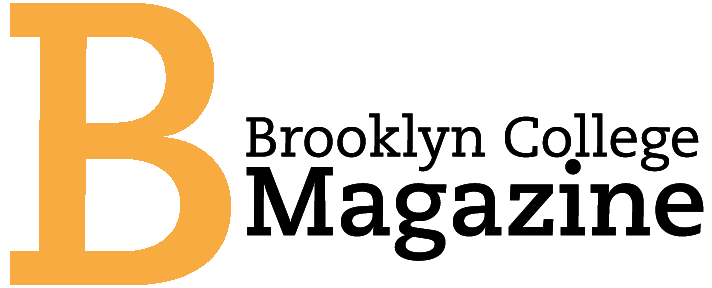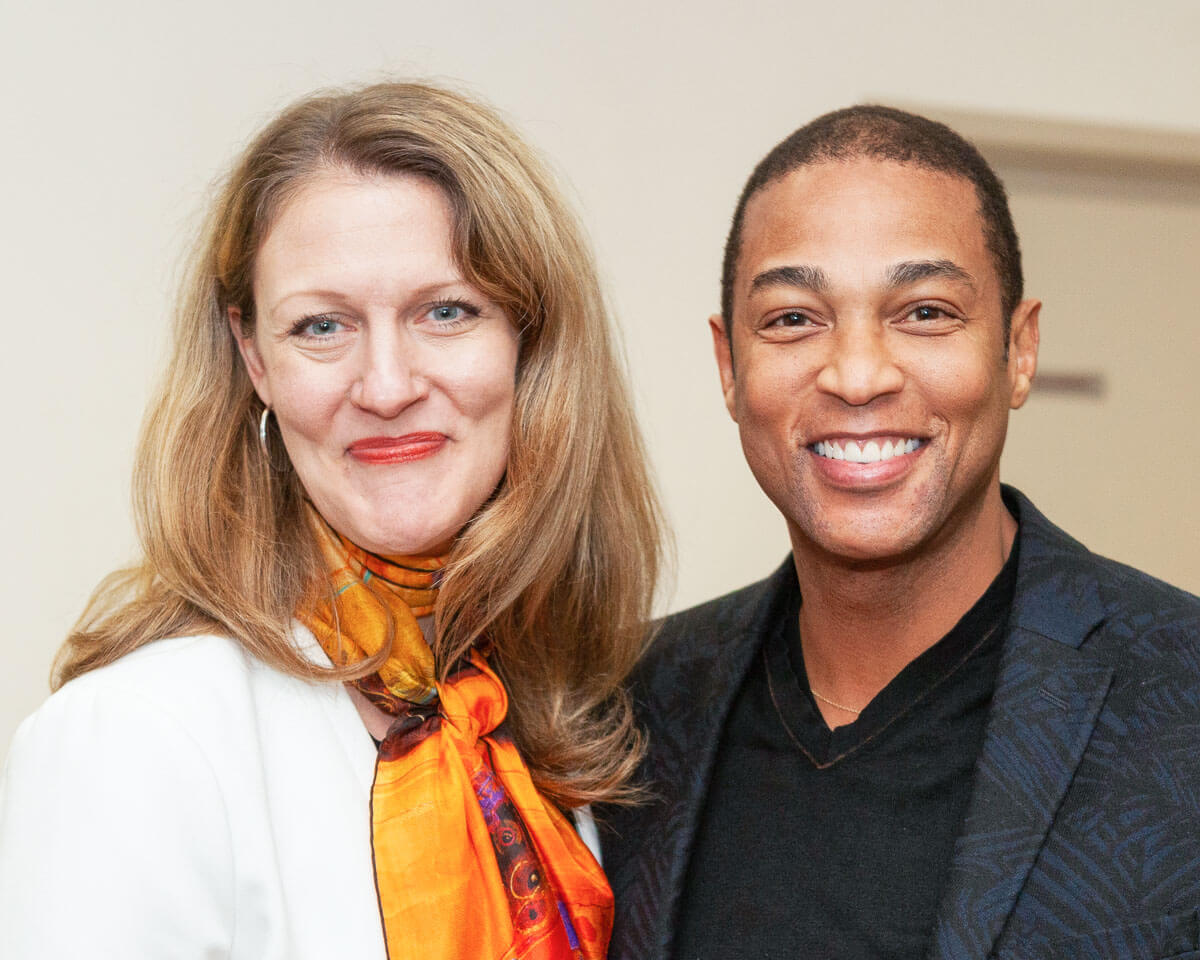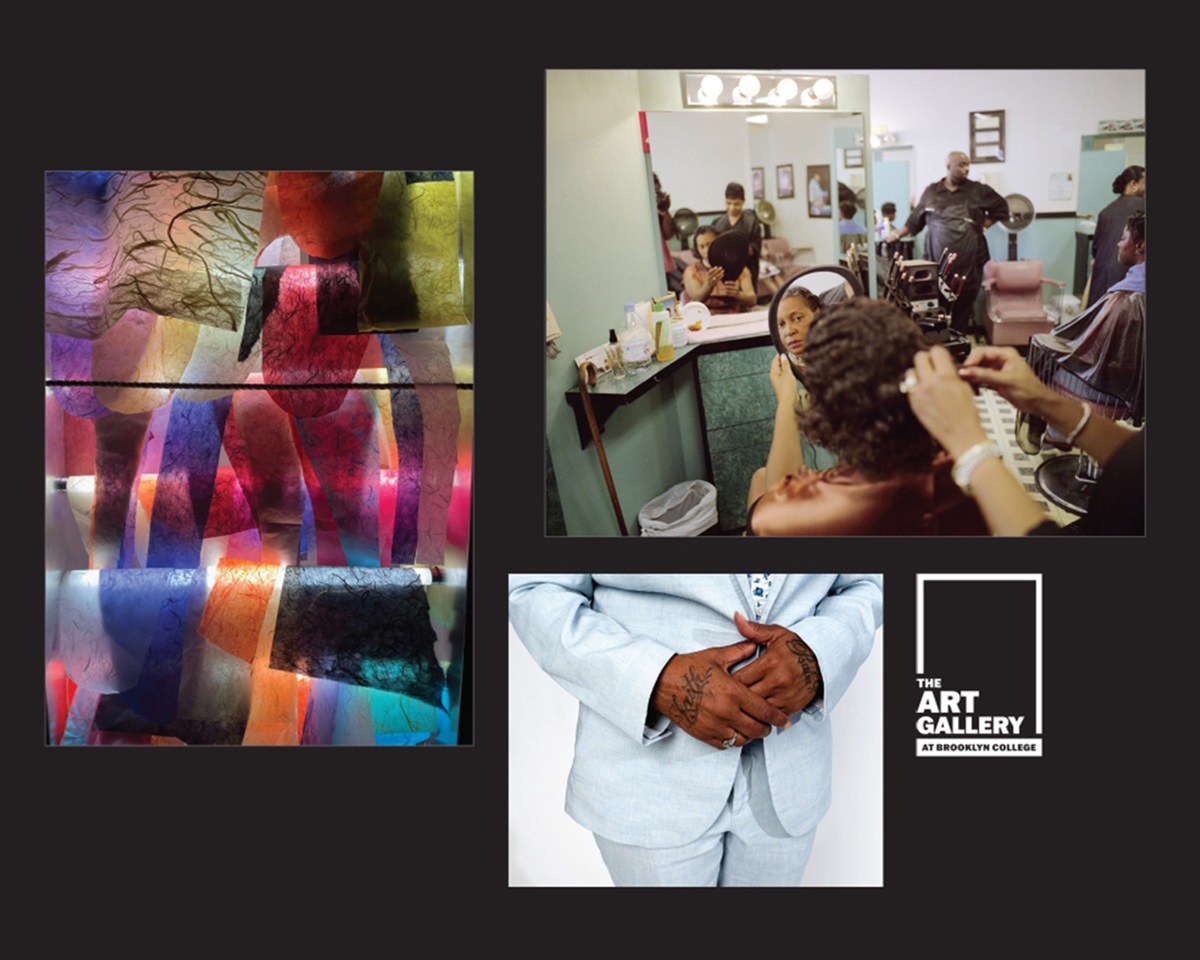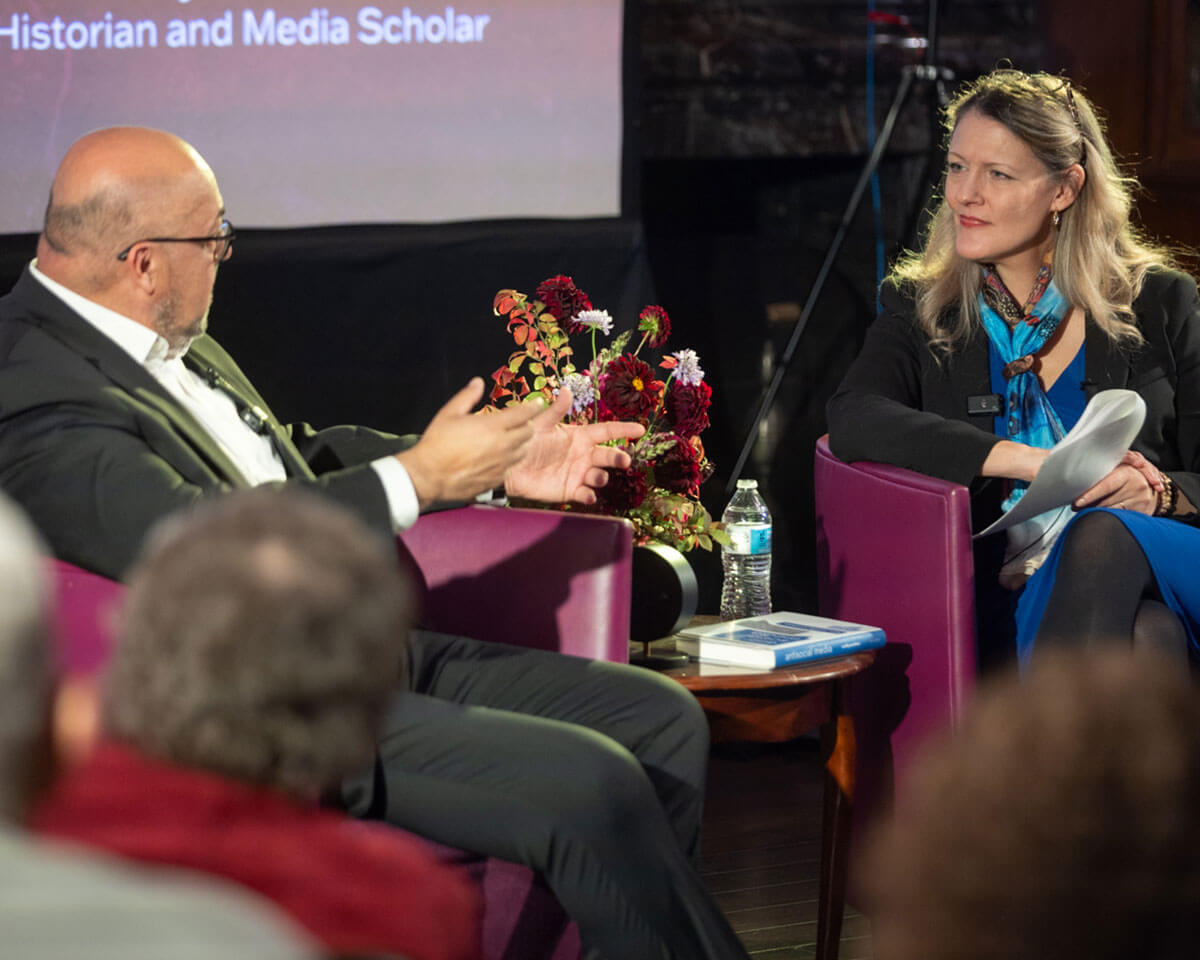CNN anchor and correspondent Don Lemon ’96 makes news even as he reports it. An outspoken critic, Lemon’s incisive, insightful, no-holds-barred commentary on his weekday prime-time show, Tonight With Don Lemon, spares nothing and no one—not presidential administrations, politicians, public officials, or celebrities. For his outspoken analysis, he has at times been the target of death threats.
Since 2006 Lemon has worked as a journalist on the scene for CNN, including at the inauguration of President Barack Obama, the Sandy Hook Elementary School shooting, the Boston Marathon bombing, the George Zimmerman trial, the shooting at the Pulse nightclub in Orlando, and Hurricane Florence. Yet, witness Lemon’s more recent interview with 12-year-old Tybre Faw, who befriended the late civil rights icon John Lewis, and his memorial to actor Chadwick Boseman for stories of uplift and hope.
A member of the Brooklyn College Foundation Board of Trustees, Lemon earned a degree in broadcast journalism from the college in 1996 and received the Distinguished Alumnus Award in 2010.
Earlier this year, he returned to Brooklyn College (via telephone) in a virtual sense to have a conversation with President Michelle J. Anderson. Although Lemon’s focus nowadays is on the Trump administration, racism in America, COVID-19, and the November election, he has had much to say about the U.S. Constitution, particularly the First Amendment, press freedom, media bias, and being called the enemy of the people.—Audrey Peterson
MJA: Hello, Don! Thank you for speaking with us today. People might not know that you’re a graduate of Brooklyn College, having majored in broadcast journalism. Could you tell us a little bit about your time at the campus?
DL: Well, I hadn’t finished with LSU when I moved from Louisiana and was working at WNYW Channel 5. I wanted to finish school and get my degree and start my TV career in broadcast journalism, but everyone in the newsroom and in the news business said, “You don’t need a degree; there are many people who are very successful and on-air and they don’t have a college degree.” I said, “No, I want that degree!” So I enrolled at Brooklyn College. Depending on my schedule, I would work and take night or day classes, sometimes doing both fulltime, sometimes doing both part-time.
It was the best, and probably the most diverse, experience I had at any college or university. It was amazing, and I really cherish it. I enjoyed it when I was there, but I wish I had enjoyed it even more.
MJA: In what sense?
DL: I was busy working and earning a living and attending school, and I wish I could’ve gotten into the student part of it more. But, you know, I had to pay the rent.
MJA: That’s the story of so many Brooklyn College students. OK, let’s turn to the topic at hand, the First Amendment. I’ll start with a general question: As a journalist, what does the First Amendment protection of freedom of the press mean to you?
DL: It means everything. I mean, we’re in the very first amendment of the Constitution—think about that and what our founding fathers thought of first when they sat down to draft the Constitution and the kinds of rights and privileges we would have as citizens of this country. And then they put us journalists in there, and that goes along with expressing ourselves: freedom of expression and freedom of the press. I hold that pretty sacred. Not every job in this land is protected by our Constitution. Journalism is meant to protect everything else that comes after and every other amendment in the Constitution, every other freedom in this country. So I look at myself as a protector of our Constitution, as a protector of our republic. And that’s what it means. Every single night when I go on the air, I’m very aware. I’m very cognizant that I am there to protect the republic.
MJA: It’s fascinating that you should say that. My next question literally was how do you conceptualize your own work? And this is what you’re saying: that you conceptualize your work as being a protector of the republic.
DL: All of the people who work in journalism, we are the protectors. The president may be the decider, the people who work in government may be the deciders. But we get to be the protectors. We keep them in line, we hold their feet to the fire, and we speak truth to power.
MJA: I think it’s easy for folks in this country to understand the great danger in a government suppressing the freedom of individual reporters. I’m thinking of the killing of Jamal Khashoggi, or the poisoning of journalists in Russia, or China’s expulsion of top U.S. reporters from its borders. In this country, though, what we see is members of the administration denigrating the press or certain members of the press corps. Do you think there’s a danger in the attempt to denigrate the press or undermine the legitimacy of certain reporters or certain news outlets?
DL: Of course there’s a danger. There’s a danger in trying to denigrate the press in general as well as certain members of the press. And there is a method to it because people don’t know what truth is. So if you continue to denigrate the press, people won’t be able to figure out whether you’re lying or not. And that’s the point. That’s the whole reason to do it–so that you get away with anything. All you have to do is say, “Well, what I’m saying is the truth, and what that person is saying is a lie.” And the powerful can’t be held accountable because people don’t know what the truth is. So what you’re doing is getting ahead of whatever lie you tell, whatever wrongdoing you want to do, by destroying the credibility of the journalist in advance.
MJA: When an elected official calls something “fake news,” it’s almost as if that disparagement may be being deployed as a preemptive strike against criticism.
DL: It is a preemptive strike. It’s to destroy the credibility in advance. You don’t want the journalist to be credible. You have an agenda that is not the truth. Usually, it’s for you and whoever you’re taking care of. That’s what’s happening right now in this country and other countries as well.
MJA: I’m wondering what the relationship is between an elected official misleading the public about the facts and the more blatant repression of reporters in other countries. How does the attempt to undermine the credibility of news outlets in this country fit into a larger context around the world?
DL: Let me just say this and then I’ll answer your question. Think about how journalists warned people about the potential of COVID-19—how lethal it was, how dangerous it was, and how sick it can make people. And some people in the government said that it was a hoax, or an attempt to destroy a presidency, or an attempt to take down the administration, and on and on and on. None of that was true. Just look at what is happening now and how people who were led to believe that it was a hoax are getting sick, and they’re realizing through the sternest example that what they’d been led to believe is not true.
All of it, whether it’s in this country, to answer your question, or another country, is power. It is so people can hang on to power. It is so people can continue to be in power that they mislead others. That’s it. So there’s your answer.
MJA: I saw your reporting on gaslighting the American people on COVID-19. When anyone does this, regardless of his or her political stripe, holding a leader’s feet to the fire in terms of what they have said over time is an attempt to make them accountable. But you’ve been criticized as a journalist for criticizing Trump. How do you make sense of that criticism in the world today, when you hear concerns about media bias, and when sometimes CNN is part of the expression of concern?
DL: I used to try to make sense of it, but there is no way. I think that the simple answer is when someone calls you fake news it’s pejorative. It is the easiest thing to do when you don’t have a good argument. So you call someone a name and you call it fake news because you don’t have an excuse for it. I don’t try to make sense of it anymore because there is no sense. It’s almost cult-like.
MJA: From your perspective as a journalist, is this era different?
DL: I can only speak from my experience since I started working at Channel 5 in 1991. This is unlike anything I’ve ever experienced in journalism. Presidents, politicians, people in power have always been leery or resentful of the press, or have had issues with the press. That is nothing new because the press has always been asking questions, always been in their business, always been a pain to them—as we should be.
But we’ve never been in an era where people called us fake or the enemy of the people. It almost feels like we’re in a war zone, and I think some journalists have post-traumatic stress disorder from how we’re treated in this country now. Any journalist now who is stateside, who is not a war correspondent, can tell you that it’s unlike anything we’ve ever experienced.
Look at the way journalists in general are treated. If you don’t work for a conservative outfit or platform you get called names. If you happen to be a journalist of color, you get called names. Journalists of color in this time of COVID-19 are being called names on the street and are being accused of bringing this virus to this country. Journalists who work at CNN. It’s just an unbelievable time to be in this business. That didn’t use to happen. Why is it happening? I’ll leave people to come to their own conclusions about that, but I think it’s a pretty simple answer.
MJA: What does this bode for the future? How do we move forward to ensure the legitimacy of the press? We’re at a time of extraordinary political polarization. A number of people point fingers at the news media as having exacerbated that polarization. How do we get to a place where people have the foundations of media literacy—the ability to critique the reliability of a messenger and to value legitimate journalism?
DL: I think there’s a reckoning coming [with the presidential election]. I think the same thing is going to happen in journalism, especially with what’s happening with the coronavirus. There are going to be people who say, “OK, listen, we’ve got to stop this whole fake news thing. We’ve got to stop calling real journalists, legitimate journalists, fake. We have to start listening to traditional journalists and traditional journalism, and we have to start allowing them access again.” We’re going to have to start having traditional press briefings again. And we’re going to have to start allowing journalists to be able to criticize those in power without people calling them “do-good liberals” or “dumb conservatives.”
We have to start taking those labels off journalists. Because if journalists criticize the president, regardless of what president is in office, whether that president is a Democrat or Republican, it doesn’t mean that you’re criticizing them because of their political leanings. It’s because you’re criticizing them because they’re the person in power. You’re holding their feet to the fire. And so I do believe that people will want to start getting back to that. There are always going to be extremes of either party. But I do see that news organizations are going to have to start allowing their journalists to do that. And news organizations are going to have to stop worrying about access to people in power, and about whether or not they’re going to get an interview with a potential candidate or someone in the administration, and about someone blocking access to them if they give a strong interview to someone who comes on their network.
That happens all the time. I have to say that I’m so happy to work at a news organization that doesn’t do that. We don’t have an entertainment wing to our organization or our parent company, and we don’t have to worry about whether or not our entertainment morning show is going to lose the interview with the queen or someone who works for the administration. That doesn’t happen at CNN. I think other news organizations need to follow suit, and news organizations and journalists all need to support each other. If someone is not called upon or someone is berated in a press conference, the next journalist should ask the same question that the previous journalist asked and was berated for.
We all have to start standing up for each other. I think that is the only way that’s going to change. Management within these companies are going to have to stand up for the journalists and stop backing down and stop suspending them for making the smallest mistake at work or in their personal lives. Everyone makes mistakes, including people in power. We have to stop asking politicians to be perfect, and we have to stop demanding journalists be perfect as well. I think that is when it will change. You will get journalists to start holding policymakers to account in ways that really matter. And that’s my high horse.
MJA: That’s a good high horse, and it’s a good place for us to get off. Don, you’ve had an extraordinary career in journalism: the Edward R. Murrow Award, three Emmys, and more. You now anchor an important news program, CNN Tonight. My last question is: What do you hope future journalists studying at Brooklyn College know?
DL: I hope they know that they should not worry about what someone else thinks of them. No matter the subject of the interview, they shouldn’t worry about what their boss, someone who’s reading their article or watching them, or even the president of the United States thinks of them. They should just do their job and ask the hard questions. Put it all on paper, if they’re print journalists, or put it all in front of the camera, if they are broadcast journalists, or put it all into the microphone, if they are radio journalists. Just do their job. And that’s it. You don’t need everyone to like you. What you need to do is just be excellent.
MJA: And protect the republic.
DL: And protect the republic. Keep it in the back of your mind that you are protected by the very first amendment of the Constitution. That’s your job, being the protector.
MJA: Such a great conversation, Don. I’m so glad we had it. Thank you. I hope very much that you and your loved ones are safe and sound during the pandemic. Please be careful. We need you, and the republic needs you.
Return to the BC Magazine



